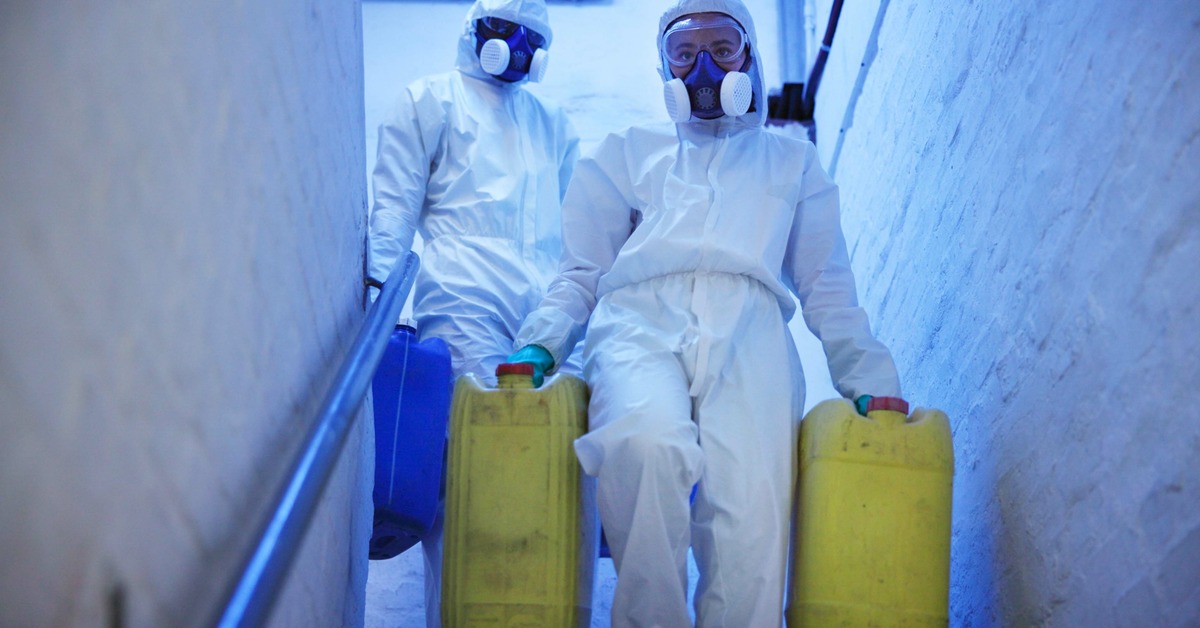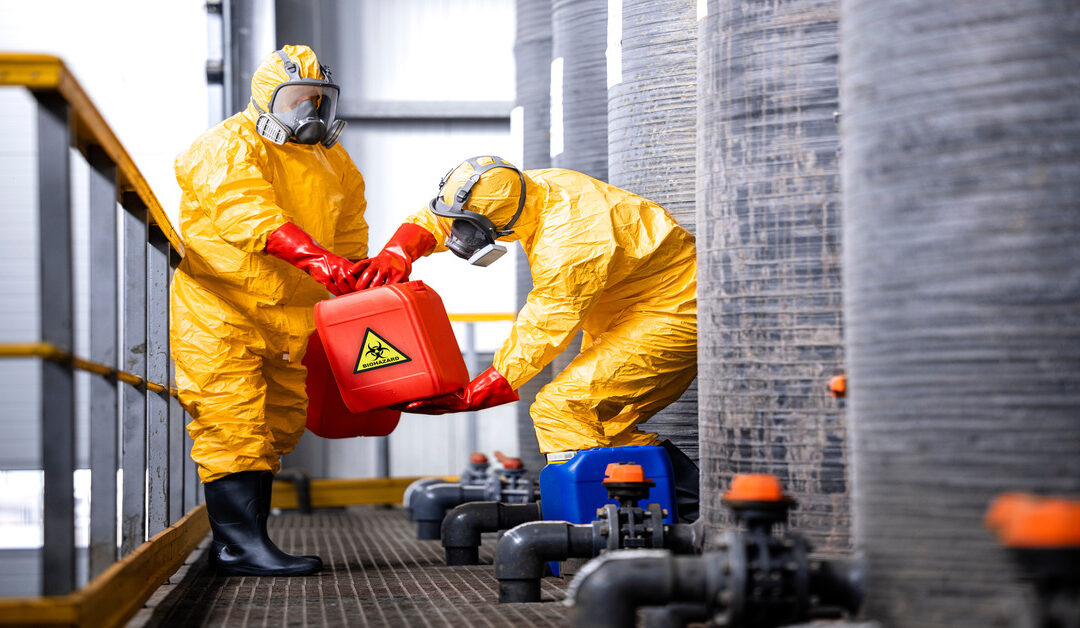Solvents support critical experiments and processes, but their mishandling can lead to serious consequences. Whether you’re running a research lab, a quality control center, or an educational facility, you must understand proper practices, as they can make a world of difference. Let’s explore why proper solvent management is important for laboratories.
Safeguards Laboratories
Proper solvent management protects everyone working in a laboratory, reducing risks associated with hazardous exposure, flammability, and spill emergencies. Solvents often contain chemicals that can irritate the skin, damage respiratory systems, and affect long-term health.
Exposure happens through inhalation, accidental spills, or improper disposal, making safety protocols crucial. For instance, storing solvents like methanol or acetone in tightly sealed containers with appropriate labeling helps personnel identify risks quickly.
Additionally, employees must wear protective gear, such as gloves and goggles, when working with certain solvents. Combining these measures with clear safety data sheets helps employees handle solvents correctly and avoid exposure.
Minimizes Fire Hazards
Many solvents have flammable properties. Materials like ethanol or hexane easily ignite when you store them near heat sources. Safe storage cabinets with fire-resistant features and proper ventilation eliminate this danger.
Installing fume hoods adds another layer of protection so volatile fumes don’t accumulate in enclosed areas. Further, conducting regular equipment maintenance reduces the chances of equipment malfunctions that could trigger fires.
Offers Spill and Leak Emergency Preparedness
Spills and leaks demand quick, calculated responses, as delayed cleanup can escalate the risks of injury, health issues, or contamination. Labs with spill kits and absorbent materials can stop issues before they spread.
For example, a properly stocked spill station containing neutralizing agents for chemical cleanup ensures the safety of team members while protecting nearby workstations. Ongoing training reinforces quick decision-making, teaching employees how to isolate dangers while maintaining safety.
Reduces Environmental Impact
Proper solvent management is important for laboratories because it reduces their environmental impact. In particular, responsible solvent use protects local environments from hazardous contamination while promoting sustainable practices. Laboratories that reduce waste and adopt recycling systems set important ecological benchmarks worth striving for.
Disposing of solvents through improper channels creates lasting pollution in water systems, soil, and the air. Chemicals washing into streams impact aquatic life, while emissions harm air quality. Using designated waste collection programs keeps toxic materials out of natural ecosystems.
Moreover, rather than merely discarding solvents, many laboratories develop recycling programs that make solvents usable again while saving on resource demands. Solvent recovery equipment recaptures reusable compounds, reducing waste generation. For example, labs dealing with organic solvents like dichloromethane or toluene frequently reuse clean versions of these chemicals. These approaches help solvents last longer while minimizing waste.

Supports Operational Efficiency
Mislabeled solvents frequently lead to errors when personnel use them incorrectly in experiments, compromising research outcomes. Proper labeling systems prevent such mistakes, maintaining accuracy during scientific procedures.
Labeled shelving compartments or color-coded containers help researchers identify and retrieve materials quickly. For example, solvents for chromatography applications near testing instruments reduce interruptions caused by misplaced items.
Effective solvent management strengthens team collaboration since everyone works within clearly defined guidelines. Sharing digital logs for solvent tracking furthers collaboration by providing real-time inventory updates. A laboratory with well-organized systems lets teams focus more on experimentation and less on navigating disjointed processes. The system sustains productivity and improves morale.
Protects Laboratory Equipment
Proper solvent management extends the lifespan of laboratory equipment. Labs that neglect solvent care eventually face higher repair costs, operational delays, and compromised research results due to equipment damage.
Some solvents contain corrosive properties that degrade sensitive equipment when employees handle them improperly. Instruments with metal components, like stainless steel analyzers or chromatography systems, develop rust or pitting when personnel clean them with incompatible solvents. Choosing the correct cleaning solutions eliminates this risk. For instance, ethanol or isopropanol works effectively for many surfaces without causing corrosion.
Improper solvent disposal can damage drains and waste systems, leading to costly repairs and interruptions. Solvents like acetone or sulfuric acid can erode pipes, causing blockages or leaks that interrupt lab operations. Using neutralization tanks or specialized drainage systems prevents these issues. For example, labs processing toxic or reactive chemicals include disposal units that handle solvent breakdown safely.
Lowers Repair and Replacement Costs
Solvent misuse accelerates the wear and tear of expensive equipment, leading to frequent requests for repairs or replacements. Routine preventive maintenance reduces these incidents. Scheduling solvent-specific cleaning or servicing minimizes potential damage. For instance, keeping solvent-handling glassware residue-free prolongs its usability and protects downstream equipment from contamination.
Promotes Ethical and Professional Standards
Labs must protect their communities, environments, and team members through transparent and professional practices. Improper solvent disposal harms local ecosystems by introducing toxic substances into water supplies, soil, or air. Following strict disposal protocols, including partnerships with certified hazardous waste handlers, ensures solvents don’t endanger community resources.
Simply put, the way labs handle solvents sends a clear message about their priorities. Responsible solvent management strengthens trust between laboratories and the public. Ethics and professionalism go hand in hand, especially for high-profile research laboratories. Proper solvent handling increases credibility and establishes the lab as a leader among peers.
For example, compliance with environmental regulations like the Environmental Protection Agency’s (EPA) hazardous waste standards enhances a lab’s profile during audits or grant applications. Overall, colleagues and funding agencies respect laboratories that prioritize accountability.

Prepares for Future Innovations
Labs that prioritize effective solvent management today position themselves to capitalize on emerging innovations and adapt seamlessly to change tomorrow. For example, many labs explore sustainable chemistry options such as bio-based solvents or water-based alternatives, which reduce health risks and environmental impact.
Laboratories that invest in solvent-tracking systems gain the flexibility to assess and integrate these improvements without disrupting ongoing research. Staying informed about technological developments ensures labs remain ahead of the curve.
Solvent distillation technologies make cleaner, reusable solvents accessible at lower costs, enabling growth without increasing waste. These practices reduce the environmental footprint of expanding labs while enhancing their ability to test innovative solutions. A thoughtful approach to solvent management bridges the gap to whatever comes next.

